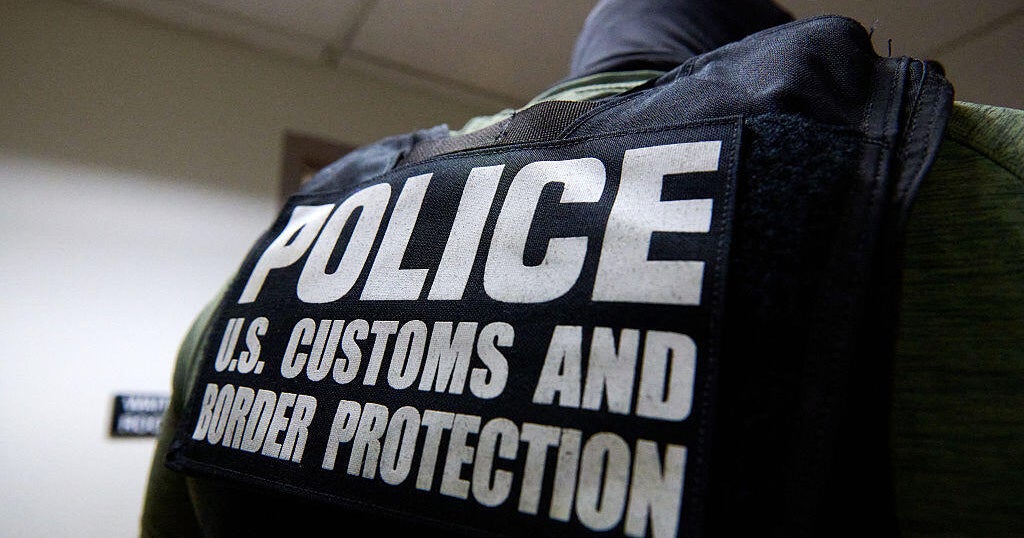An appeals court late Friday mostly kept in place restrictions on “roving” immigration raids in the Los Angeles area, agreeing with a lower court judge who found that sweeps conducted by the Trump administration in Southern California appeared to have been predicated on people’s race and other factors, like speaking Spanish.
A panel of judges at the U.S. Court of Appeals for the Ninth Circuit largely denied a Trump administration request to suspend the lower court ruling, which required federal immigration officials to have reasonable suspicion that someone is in the country illegally before detaining them.
The immigration raids at the center of the legal battle triggered massive protests in the Los Angeles area in June, as well as widespread fears among the region’s large Latino community. While most demonstrations were peaceful, instances of violence led President Trump to deploy National Guard troops and U.S. Marines to Los Angeles with orders to protect federal buildings and the immigration agents enforcing his far-reaching crackdown on illegal immigration. Most of them have since been demobilized.
Those high-profile immigration arrests in California have continued, led by Customs and Border Protection agents who have been assigned to help Immigration and Customs Enforcement officers with furthering the Trump administration’s mass deportation campaign — in some cases, far away from the U.S.-Mexico border.
Beyond requiring CBP and ICE to have reasonable suspicion before detaining someone, the July order from U.S. District Judge Maame Ewusi-Mensah Frimpong prohibited federal agents from basing arrests on people’s race or ethnicity, the fact that they speak Spanish or have an accent, their presence in a location, or their occupation.
Frimpong stated that any immigration arrests that relied exclusively on these factors violated the U.S. Constitution’s 4th Amendment, which protects individuals from unreasonable searches and seizures.
“We agree with the district court that, in the context of the Central District of California, the four enumerated factors at issue — apparent race or ethnicity, speaking Spanish or speaking English with an accent, particular location, and type of work, even when considered together — describe only a broad profile and ‘do not demonstrate reasonable suspicion for any particular stop,'” the 9th Circuit panel wrote in its opinion Friday.
The panel was comprised of Circuit Judges Ronald M. Gould, Marsha S. Berzon, and Jennifer Sung, appointees of former Presidents Bill Clinton and Joe Biden.
The cases cited in the lawsuit against the Los Angeles-area immigration sweeps involved arrests in June near a car wash, a tow yard and other locations where U.S. citizens were among those questioned about their legal status and detained by federal agents. Advocates have described the operations as “roving patrols.”
The 9th Circuit did alter one part of Frimpong’s ruling, removing an exception to her ban on using the four factors that include people’s race and vocation when making arrests. The panel said that an “except as permitted by law” clause in her order was too vague.
Pro-immigrants advocates hailed Friday’s ruling, denouncing the Trump administration’s immigration sweeps as indiscriminate raids that have instilled fear in the Los Angeles area.
“Every person, regardless of immigration status, has the right to live, work, and belong in their community without being hunted, harassed, or locked away,” said Lindsay Toczylowski, president of the Immigrant Defenders Law Center, a Los Angeles-based group that represents those facing deportation.
The Trump administration has maintained in court that federal officials rely on intelligence packages and certain information — like “past experiences” that immigrants living in the U.S. illegally frequent or work at certain locations — when carrying out immigration enforcement operations.
CBS News reached out to representatives for the Department of Homeland Security, which oversees ICE and CBP, to request comment on Friday’s order.




